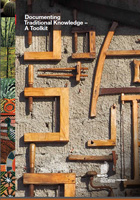A wide range of tools and proposals have been developed over the past decade or so to protect traditional knowledge (TK) and traditional cultural expressions (TCEs) (including using classical IP systems, developing sui generis legislation, applying defensive protection instruments, among others). Special attention has been given to documentation and the role of databases and registers in this regard.
As a result, identifying, collecting and organizing TK and TCEs has become a widely discussed option to guarantee indigenous peoples’ and local communities’ social, cultural and economic interests. Documenting TK and TCEs has emerged as one of the tools which may play a role in impeding further loss of TK, maintaining TK over time, supporting benefit-sharing and, ultimately, protecting TK and TCEs from unwanted uses.
Yet, the mere documentation of TK or TCEs cannot stand alone as an effective strategy for protecting TK and TCEs. TK and TCEs documentation should not take place within a legal and policy vacuum.
Indeed, concerns and questions have been raised regarding documentation and its potential effects on the rights, cultures and livelihoods of indigenous peoples and local communities, including through the placing of TK and TCEs in the "public domain", the loss of control, the making of TK and TCEs publicly available, the loss of the secret nature of some TK and TCEs, etc.
Documenting Traditional Knowledge – A Toolkit presents a range of easy-to-use checklists and other resources to help ensure that anyone considering a documentation project can address those issues effectively.
Featured

Documenting Traditional Knowledge: A Toolkit
Practical guidance on how to undertake a TK documentation exercise
Download